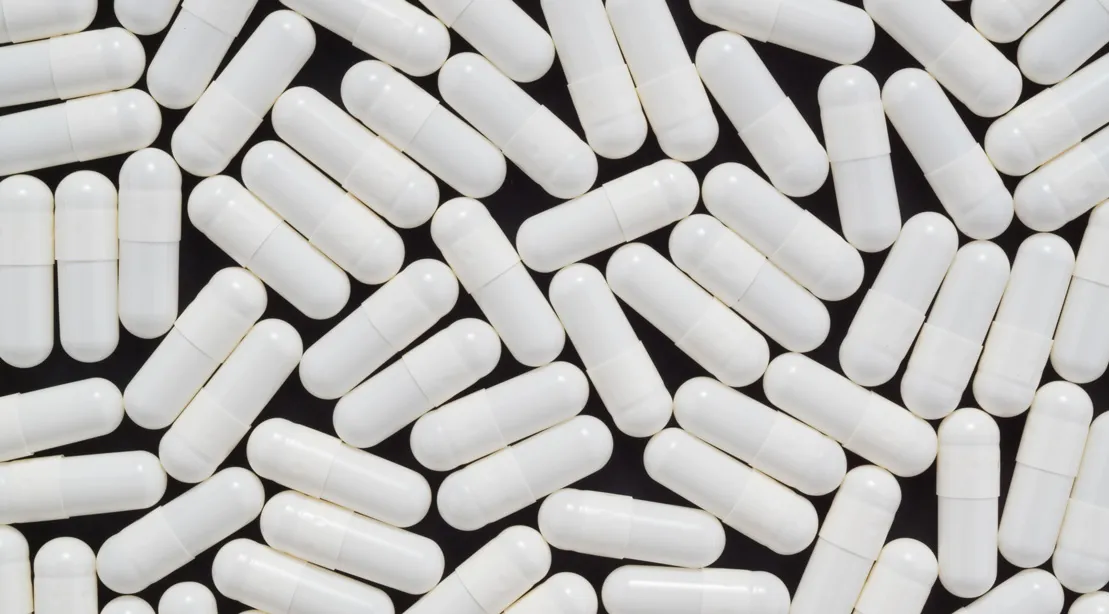Muscle growth, or hypertrophy, happens when your muscles get bigger in size without increasing the number of muscle fibers.1 To help this process, you might consider taking supplements that support muscle growth. These supplements can improve your workout performance, build strength, and aid recovery.
Some popular muscle-building supplements include creatine, whey protein, and glutamine. Here’s a look at the top 10 supplements that can help you grow muscles effectively.
1. Creatine
Creatine is an amino acid found naturally in your body and in foods like meat and fish. It’s one of the most studied and effective supplements for improving exercise performance and boosting strength. Research shows creatine provides muscles with energy during workouts, helping with strength and power gains.3
Many people take creatine to increase their workout capacity, but most studies focus on young, healthy individuals. Creatine dosing usually starts with 20 grams daily for 5–7 days, followed by 3–5 grams daily for up to 12 weeks. Common side effects include weight gain from water retention, nausea, and muscle cramps.4
2. Carnitine
Carnitine is naturally produced by your body and found in red meat and fish. It plays a key role in energy metabolism, helping your body use fat for fuel. Studies show carnitine improves muscle recovery, oxygen use, and exercise performance.5
Carnitine is available in supplements like capsules and powders, with doses ranging from 1–4 grams daily. Some people may experience stomach cramps or nausea as side effects.6
3. Whey Protein
Whey protein can be consumed through powders, shakes, and bars. The typical dosage is around 20–30 grams per serving, and side effects like bloating or nausea may occur, especially for people with lactose intolerance.8
4. Branched-Chain Amino Acids (BCAAs)
Whey protein is one of the best sources of protein, commonly found in milk. It is easily absorbed by the body and contains essential amino acids for muscle growth. Studies show regular use of whey protein can improve muscle strength and size, especially when combined with exercise.7
BCAAs include leucine, isoleucine, and valine. These amino acids help fuel muscles during exercise and aid in muscle repair. Studies show they may improve muscle size and strength while reducing soreness after workouts.9
BCAAs are found in foods like meat and dairy, or in supplements. Commonly recommended doses range from 10–14 grams daily, with side effects like nausea and diarrhea reported at higher doses.10
5. Glutamine
Glutamine is an amino acid that supports muscle recovery and boosts your immune system. It is naturally present in your muscles and blood. While research on glutamine’s effects on muscle growth is mixed, some studies suggest it helps with strength and recovery.11
Glutamine is available in powder form and has been studied in doses up to 45 grams daily. Possible side effects include bloating, constipation, and headaches.12
6. HMB (Beta-Hydroxy-Beta-Methylbutyrate)
HMB is a metabolite of the amino acid leucine, and it helps reduce muscle damage and speed up recovery. Some studies show HMB improves strength and power, while others show mixed results.13
HMB is often used by athletes and bodybuilders. The recommended dose is around 3 grams daily, with no major side effects reported.14
7. Betaine
Betaine, a compound found in beets and spinach, helps improve muscle endurance by increasing creatine levels. Some studies suggest betaine improves strength, while others find limited benefits for muscle growth.15
Betaine supplements are available in powders or capsules. The effective dosage is 2–5 grams daily, with no major side effects reported.16
8. Coenzyme Q10 (CoQ10)
CoQ10 is an antioxidant found in the heart, liver, and other organs. It may protect muscles from damage caused by exercise. However, more research is needed to confirm its muscle-building benefits.17
Common dosages range from 60–1,000 milligrams daily, and side effects may include upset stomach or insomnia. CoQ10 may also interact with medications like blood thinners.18
9. DHEA (Dehydroepiandrosterone)
DHEA is a hormone that can be converted into testosterone or estrogen in the body. Some research suggests DHEA supports muscle growth, but other studies show it has little effect.19
DHEA is banned by sports organizations like the NCAA, and its use comes with potential side effects such as mood changes, headaches, and insomnia.20
10. Beta-Alanine
Beta-alanine helps produce carnosine, which reduces muscle fatigue during workouts. Research on beta-alanine’s effect on muscle growth is mixed, but it may help with endurance during high-intensity exercise.21
The typical dose is 4–6 grams daily. Common side effects include a tingling sensation in the skin, especially at higher doses.22
Choosing the Right Supplement
When choosing a supplement, it’s important to go for high-quality products that have been tested by independent organizations like NSF International or ConsumerLab.com. Always talk to a healthcare provider before starting any supplement to ensure it’s safe and suitable for your goals.
A Quick Summary Muscle growth supplements can help you build muscle and improve performance when paired with proper exercise. Some popular supplements include creatine, whey protein, and BCAAs. Before starting a new supplement, consult with your healthcare provider to make sure it’s the right choice for you.
